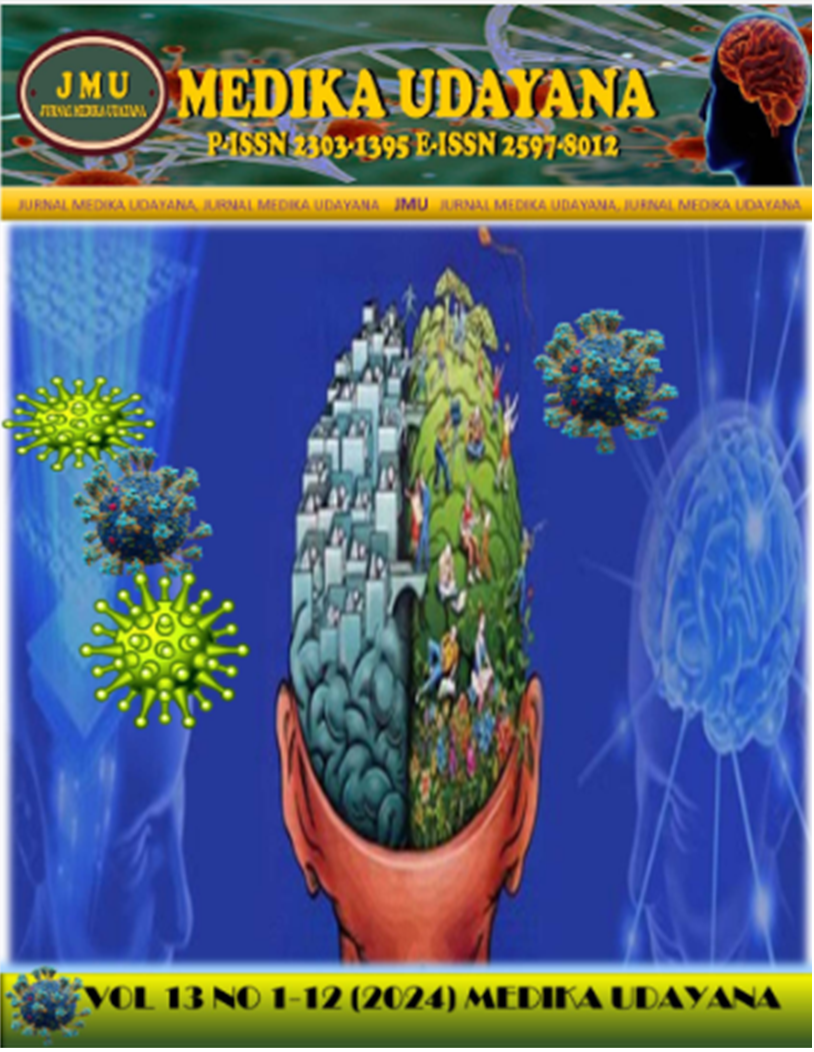THE RELATIONSHIP OF POST TRAUMATIC STRESS DISORDER FACTORS WITH PSYCHOSOMATIC SYMPTOMS TO LONG COVID PATIENTS AT RSUD TABANAN
Abstract
Long COVID is a disease in COVID-19 patients who have recovered, but still experience symptoms for longer than normal COVID-19 patients. The main contributing factor to the emergence of long-lasting symptoms is Post Traumatic Stress Disorder (PTSD). PTSD is a stress-related mental disorder and may arise following exposure to a serious and unpleasant traumatic event or injury. The World Health Organization (WHO) has recognized Long COVID as a significant health problem and has initiated research efforts. The aim of the research is to determine the relationship between Post Traumatic Stress Disorder factors and psychosomatic symptoms of Long COVID patients at RSUD Tabanan Regional.
This research is an observational analytic with a cross-sectional design. Sample collection was carried out on COVID-19 patients who had been declared cured and allowed to go home at the RSUD Tabanan who had met the inclusion and exclusion criteria. The sampling technique is purposive random sampling, with a minimum sample size calculated using the Lemeshow formula, namely 73 respondents. Data was collected using an offline questionnaire. This study aims to determine the age and gender characteristics, the magnitude of the incidence, and the relationship between Post Traumatic Stress Disorder factors and psychosomatic symptoms of Long COVID patients. The research results showed that a small number of respondents, 29 people (39.73%) experienced PTSD during COVID, and 44 people (60.27%) did not experience PTSD. The results of the analysis of the psychosomatic symptoms of Long COVID patients showed that the majority of respondents, 59 (80.82%) had long-lasting symptoms, and 14 (19.18%) patients did not have long-lasting symptoms. After being tested using the bivariate Spearman correlation test, the result was P value = 0.001 < ? (0.050), meaning that there was a significant relationship between the Post Traumatic Stress Disorder factor and the psychosomatic symptoms of Long COVID patients at the RSUD Tabanan.











